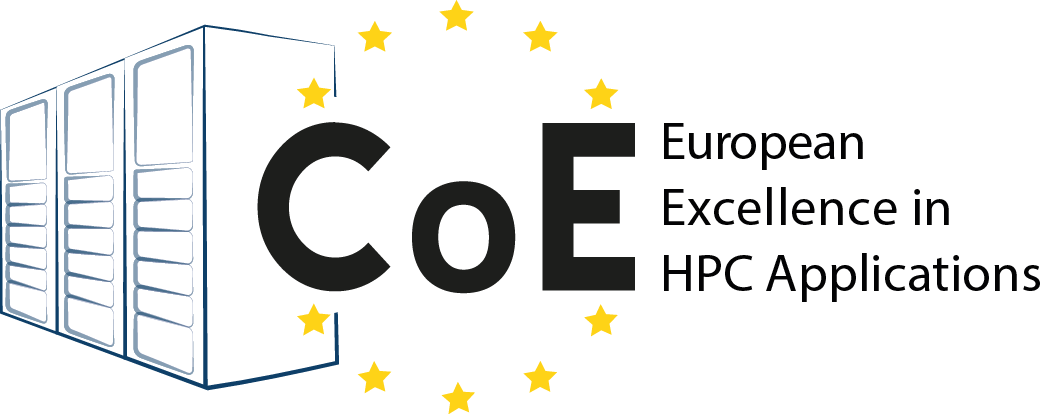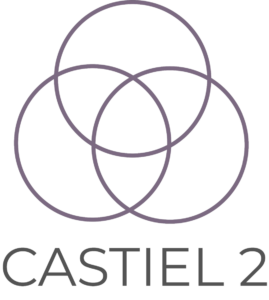HPC as a strategic tool to increase European competitiveness entails investment not only in infrastructure, applications and R&D, there is also a strong need to invest in skills development of the labour force underpinning the ecosystem. As EuroHPC realises the emergence of new HPC systems and national competence centres across Europe, there is a growing need to examine how HPC skills development activities will co-evolve. This workshop focuses on the HPC education and training landscape among the EU13 Member States, with individual talks on existing programmes, target communities and industries, and future perspectives. It will be of general interest to HPC education and training stakeholders in learning more about an important part of the European ecosystem which will translate into better planning of future skills development initiatives.
Programme
13:30 – 13:40 “Welcome, HPC Education and Training – Landscape and Perspectives of EU13 Member States” – Simon Wong
13:40 – 14:30 Panel: Perspectives from EU13 Member States – Moderator: Simon Wong
14:30 – 15:00 Coffee break
15:40 – 15:55 Panel: Perspectives from EU13 Member States – Moderator: Simon Wong
15:55 – 16:00 Wrap-up and farewell
Please register here: https://events.prace-ri.eu/event/1018/page/114-registration
Hosted by FocusCoE, this workshop within the EuroHPC Summit Week 2021 will include a first introductory part with a the HPC competence centers followed by a discussion panel titled “Applications Support in EuroHPC – Status and Future“.
Programme
| 13:30 – 13:40 | FocusCoE welcome and introduction | Guy Lonsdale (Scapos) |
| 13:40 – 14:30 | Preparing European Applications for the Exascale Era – Successes and Perspectives from the HPC Centres of Excellence | Edouard Audit, CEA & EoCoE |
| 14:30 – 15:00 | Coffee break | |
| 15:00 – 15:55 | Panel: Applications Support in EuroHPC – Status and Future
Subtitle: „Centres of Excellence in Context“ Panelists: Elisa Molinari, Univ. Modena & MAX, RIAG Sinead Ryan, Trinity College Dublin & INFRAG Edouard Audit, CEA & EoCoE Bastian Koller, HLRS & Excellerat, EuroCC/CASTIEL Joost VandeVondele, CSCS & MAX, RIAG, PRACE Daniel Opalka, EuroHPC Juan Pelegrin, European Commission |
Moderator: Erwin Laure, MPCDF & FocusCoE |
| 15:55 – 16:00 | Wrap-up and farewell | Guy Lonsdale (Scapos) |
Register to this event here: https://na.eventscloud.com/ereg/newreg.php?eventid=559438&
Organised jointly by the H2020 projects IS-ENES3 and ESiWACE2, the workshop will be virtual, from the 16th to 18th March 2021 (3.5h per day).
The aim of this workshop is to bring together climate scientists and experts from academia and industry to share knowledge and experience and to identify new opportunities in the areas of machine learning, artificial intelligence and big data techniques for Weather and Climate Modelling.
The workshop is organised around three sessions:
– 16 March (Day 1): Views from Domain Science
– 17 March (Day 2): ML/AI Software Technologies
-18 March (Day 3): High performance, Infrastructure and Big data Challenges
You can register here before March 12th, 2021 !
A wide range of networking activities has been going on in EoCoE-II, in order to enable the consortium to reach out to key stakeholders and facilitate EoCoE-II’s impacts and large-scale uptake. The need for a specific expertise in exploitation of the project’s results was recognized in EoCoE-I. It was therefore agreed in the consortium that a professional external support was needed to maximize the impact of this activity, implement a methodology select and promote a selection of Key Exploitable Results. To this end, the Italian company META Group, which specializes in maximizing the exploitation of results stemming from research projects, was hired.
This workshop will allow META to present their approach and how they have been working to improve EoCoE’s exploitation of results. The EoCoE researchers whose results have been selected will feature as speakers, to describe how they benefited from this process, and what lessons can be applied to all CoE-related dissemination and exploitation strategy.
More ifnormation: https://indico.math.cnrs.fr/event/6469/
ChEESE organises a session called “Towards Exascale Supercomputing in Solid Earth Geoscience and Geohazards” at EGU21, which takes place on 19-30 April 2020. This session is covened by Arnau Folch, Steven J. Gibbons, Marisol Monterrubio-Velasco, Jean-Pierre Vilotte and Sara Aniko Wirp.
More about the session:
The leading-edge computational and data facilities of the forthcoming Exascale era will bring a variety of currently inaccessible Solid Earth computational challenges within reach. Firstly, many Geoscience calculations that are currently unaffordable due to the size of the computational domain, necessary model resolution, or insurmountable data requirements, will become increasingly tractable. Secondly, Exascale supercomputing will facilitate probabilistic framework approaches to ever larger and more complex problems, through larger ensembles of model realizations and incorporating high-end data inversion, model data assimilation, and uncertainty quantification. Finally, Urgent High Performance Computing will become a reality with complex numerical simulations, potentially with large model ensembles, becoming possible in near real-time. Numerous natural hazards which pose a direct threat to human life and critical infrastructure (e.g. earthquakes, volcanic eruptions, wildfire, landslides, and tsunamis) can require rapid and well-informed decision making in the emergency management process. The basis for these decisions is often provided by complex and data-intensive numerical models and we face a challenge of designing and implementing robust and powerful workflows (including computing, data management, sharing and logistics, and post processing) which present stakeholders with relevant and accurate results in a timely manner. This transdisciplinary session seeks contributions related to the preparation of codes for Exascale, geoscience workflows and services, adapting codes for emerging hybrid hardware architectures, e-services demanding Urgent HPC, early warning and forecasts for geohazards, hazard assessment, and high-performance data analytics. Examples include codes and workflows for near real-time seismic simulations, full-waveform seismic inversion, ensemble-based forecasts, faster than real-time tsunami simulation, magneto-hydrodynamics simulations, and physics-based hazard assessment.
This session is organized by the Center of Excellence for Exascale in Solid Earth (ChEESE) with the support of the European Plate Observatory System (EPOS), the EUDAT Collaborative Data Infrastructure (EUDAT CDI) and the Partnership for Advanced Computing in Europe (PRACE). The organisers plan to submit a proposal for an Advances in Geosciences (ADGEO) EGU General Assembly special volume on one or more EGU Divisions.
ChEESE co-organises a virtual workshop called “First Joint CoEs Technical Workshop” with other Centers of Excellence EXCELLERAT and HiDALGO. This event, which takes place on 27-29 January 2021, is open to ChEESE, EXCELLERAT and HiDALGO partners. Invited members of other CoEs may also participate.
Several ChEESE partners present in this event:
Michael Bader (TUM) presents “Addressing load balancing challenges due to fluctuating performance and non-uniform workload in SeisSol and ExaHyPE” in the Load Balancing session of the workshop.
Soline Laforet (Atos) presents “Exascale Co-design Approach with the SeisSol Practical Case” in the Co-design session.
Giorgio Amati (CINECA) presents “Introduction by CINECA”.
Piero Lanucara (CINECA) presents “GPU Porting and strategies by ChEESE” and Marc de la Asunción presents ” The HySEA GPGPU development and its role in ChEESE project” in the GPU Porting session.
The Platform for Advanced Scientific Computing (PASC) Conference, co-sponsored by the Association for Computing Machinery (ACM) and the Swiss National Supercomputing Centre (CSCS), will be held from July 5 to 8, 2021 at the University of Geneva (Uni Mail), in Geneva, Switzerland.
The 14th annual Oil and Gas High Performance Computing (OG-HPC) Conference, hosted annually at Rice University by the Ken Kennedy Institute, is the premier meeting place for the energy industry to engage in conversations about challenges and opportunities in high performance computing, computational science and engineering, machine learning, and data science. Attended by more than 500 leaders and experts from the energy industry, academia, national labs, and IT industry, this is a unique opportunity for key stakeholders to engage and network to help advance HPC in the energy industry.
The agenda for the conference includes invited keynote speakers, technical program, virtual networking reception, student poster session, and pre and post-conference workshops. This year’s virtual conference will have an online venue for networking, collaborating, and building partnerships focused on high performance computing, computational science and engineering, machine learning, and data science.
Technical themes for conference sessions are developed based on current challenges and the diversity and strengths of the abstracts received.
This conference has become the key venue for planners and practitioners alike. This is a forum for taking the pulse of industry needs and discussing challenges, opportunities and new development at the interface of the energy industry, the IT industry, and the academic and research community.
Co-organised by HPC centres from Singapore, Japan and Australia, SupercomputingAsia (SCA) 2021 is an annual conference that encompasses an umbrella of notable supercomputing and allied events in Asia. SCA21 will be held as a virtual conference from 2 to 4 March 2021. The key objective of SupercomputingAsia conference is to promote a vibrant and relevant HPC ecosystem in Asia. Delegates will be able to gain access to visionary insights from thought leaders in academia and industry, optimum networking opportunities and the Supercomputing community in Asia.



